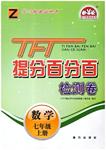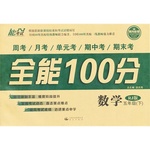题目内容
6.But David Hale,an economist at Kemper Financial Services,can't help ______ whether the wait might be shorter.( )| A. | wonders | B. | to wonder | C. | wondering | D. | wonder |
分析 但是David Hale,一位在肯珀金融服务中学的经济学家情不自禁地想等待的时间是不是可以更短一点.
解答 答案:C can't help doing是固定结构,意思是"情不自禁做某事",所以本题选择C.
点评 考生要牢记含有动名词的一些固定短语.

练习册系列答案
 提分百分百检测卷系列答案
提分百分百检测卷系列答案 宝贝计划期末冲刺夺100分系列答案
宝贝计划期末冲刺夺100分系列答案 能考试全能100分系列答案
能考试全能100分系列答案
相关题目
16.Today I am known for my voice.Perhaps the greatest honor came when I was asked to read The New Testament (《新约全书》) on tape.
But it (36)B a long time to believe such good things could happen to me.When I was a child,I stuttered (结巴) so badly that I was completely (37)C to speak in public.
Then when I was 14,Professor Donald Crouch came to my school.He was a retired college professor.English was his favorite subject and (38)Dwas his deepest love.He held a book of poems as if it were a crystal,turning pages as if uncovering treasures.When he heard that our school was teaching Shakespeare and other classics,he felt regretful for not being a part of our school sooner.
When he learned that I not only loved poetry but was writing it,we became closer.There was,however,one(39)A-Professor Crouch could not stand the fact that I refused to read my poems to the class.
"Jim,poetry is (40)Bto be read aloud,"he said."You should be able to speak those beautiful words."I shook my head and(41)A.
One day he(42)Cme.
After handing in a poem,I waited for his (43)D.It didn't come.Instead one day as the students had gathered together,he (44)Ame,"Jim,I don't think you wrote this poem."
I stared at him in disbelief."Why,"I started,(45)Bflooding me."of course I did!""Well,then,"he said,"you've got to prove it by getting up and (46)C it from memory."
By then the other students had settled at their desks.With knees shaking,I walked up to the front.For a moment I stood there,breathless.Then I began,and kept going.I recited my poem all the way through!
Afterwards,Professor Crouch encouraged me to read other writers'poetry before the public. I discovered I did have a (n)(47)Aand found my classmates actually looked forward to hearing me recite.
But it (36)B a long time to believe such good things could happen to me.When I was a child,I stuttered (结巴) so badly that I was completely (37)C to speak in public.
Then when I was 14,Professor Donald Crouch came to my school.He was a retired college professor.English was his favorite subject and (38)Dwas his deepest love.He held a book of poems as if it were a crystal,turning pages as if uncovering treasures.When he heard that our school was teaching Shakespeare and other classics,he felt regretful for not being a part of our school sooner.
When he learned that I not only loved poetry but was writing it,we became closer.There was,however,one(39)A-Professor Crouch could not stand the fact that I refused to read my poems to the class.
"Jim,poetry is (40)Bto be read aloud,"he said."You should be able to speak those beautiful words."I shook my head and(41)A.
One day he(42)Cme.
After handing in a poem,I waited for his (43)D.It didn't come.Instead one day as the students had gathered together,he (44)Ame,"Jim,I don't think you wrote this poem."
I stared at him in disbelief."Why,"I started,(45)Bflooding me."of course I did!""Well,then,"he said,"you've got to prove it by getting up and (46)C it from memory."
By then the other students had settled at their desks.With knees shaking,I walked up to the front.For a moment I stood there,breathless.Then I began,and kept going.I recited my poem all the way through!
Afterwards,Professor Crouch encouraged me to read other writers'poetry before the public. I discovered I did have a (n)(47)Aand found my classmates actually looked forward to hearing me recite.
| 36.A.lasted | B.took | C.cost | D.wasted |
| 37.A.unnecessary | B.unlikely | C.unable | D.impossible |
| 38.A.archaeology | B.art | C.architecture | D.poetry |
| 39.A.difficulty | B.promise | C.agreement | D.difference |
| 40.A.said | B.meant | C.prepared | D.found |
| 41.A.turned away | B.sat down | C.talked back | D.gave in |
| 42.A.greeted | B.scolded | C.tricked | D.comforted |
| 43.A.help | B.idea | C.reward | D.comment |
| 44.A.challenged | B.attacked | C.noticed | D.told |
| 45.A.pride | B.anger | C.excitement | D.joy |
| 46.A.reading | B.speaking | C.repeating | D.telling |
| 47.A.voice | B.Sound | C.appearance | D.interest |